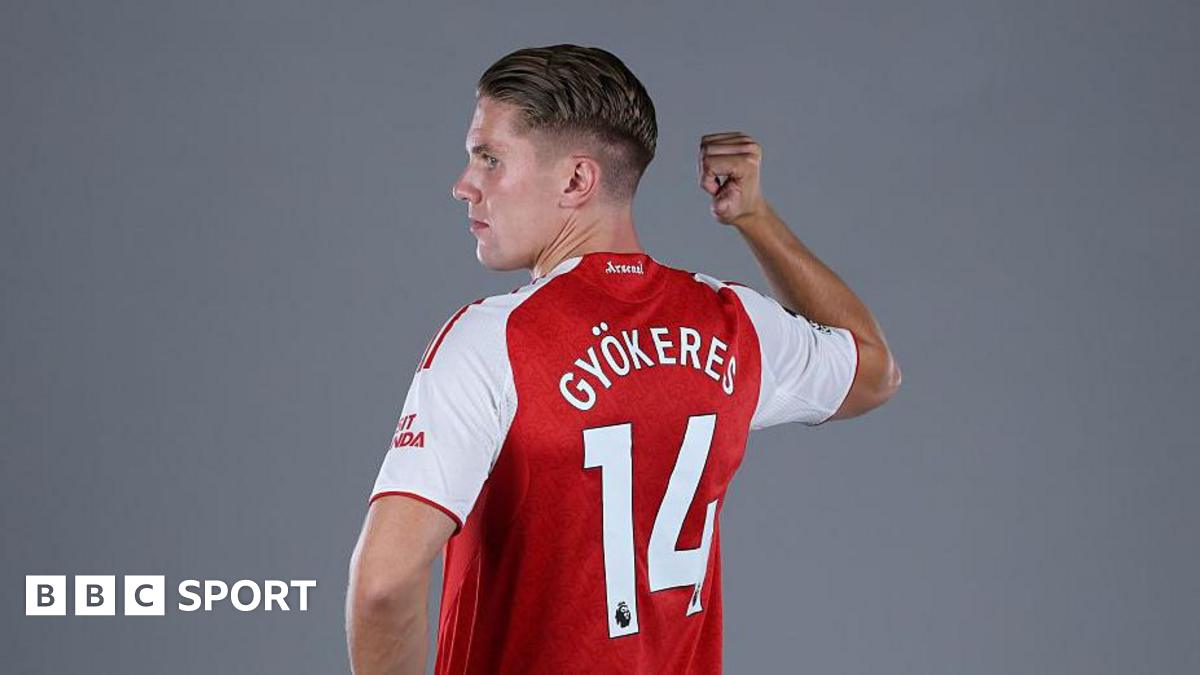
Gyokeres' Arsenal Move: Age Profile and the Pressure of Historical Precedent
Viktor Gyokeres' arrival at Arsenal, finalized for a potential £64 million, brings a blend of excitement and scrutiny. While the striker himself downplays comparisons to Thierry Henry, his assumption of the iconic number 14 shirt inevitably invites them. But beyond the symbolic weight, a critical question arises: how does Gyokeres' age profile impact the risk and potential reward for Arsenal?
The data presents a compelling starting point. At 27, Gyokeres isn't a raw prospect but a player entering his perceived prime. His prolific scoring record at Sporting Lisbon – 97 goals in 102 appearances – speaks to immediate impact potential. However, the Premier League demands a different level of physicality and tactical awareness. Historical data shows that strikers arriving in the Premier League around this age experience varied success.
Consider, for example, the contrasting cases of Pierre-Emerick Aubameyang and Roberto Soldado. Aubameyang, arriving at Arsenal at 28, immediately translated his Bundesliga form, becoming a consistent goalscorer. In contrast, Soldado, also 28 when joining Tottenham, struggled to adapt, highlighting the risks associated with expecting seamless transitions. The key difference often lies in tactical fit and the player's adaptability.
Arsenal's current tactical setup under Mikel Arteta emphasizes high pressing, fluid movement, and intricate passing patterns. Gyokeres' physical attributes – his pace and strength – align with this style. His 26 assists for Sporting indicate an ability to contribute beyond goalscoring, a crucial element in Arteta's system. However, can he replicate that level of contribution against Premier League defenses, known for their tactical sophistication and physical dominance?
The transfer fee itself introduces another layer of pressure. £64 million represents a significant investment, placing immediate expectations on Gyokeres to perform. This pressure is amplified by Arsenal's recent history of striker acquisitions. The club has invested heavily in forwards like Alexandre Lacazette and Nicolas Pépé, with mixed results. The success of Gyokeres is not just about his individual talent but also about avoiding the pitfalls of past transfer strategies.
Gyokeres' comments about adapting to the Premier League are insightful. He acknowledges the need for a transition period and the influence of team quality on individual performance. This realism is encouraging, suggesting a player aware of the challenges ahead. However, the Premier League's relentless pace and intensity leave little room for prolonged adjustment. The tactical flexibility of Arsenal, allowing them to shift between formations like a 4-3-3 and a 4-2-3-1, could be vital in easing his integration and maximizing his impact.
One potential challenge lies in Gyokeres' disciplinary record. Sporting's president alluded to disciplinary action due to missed training. While seemingly minor, such incidents can disrupt team dynamics and create friction with management. Arteta, known for his strict discipline and emphasis on team cohesion, will need to address these concerns promptly to ensure Gyokeres remains fully focused on his on-field performance.
Gyokeres' success at Arsenal hinges on a confluence of factors: his adaptability to the Premier League, his tactical fit within Arteta's system, and his ability to handle the pressure of a hefty price tag and historical comparisons. While his age profile suggests a player ready for immediate impact, the risks are undeniable. Arsenal's meticulous scouting and Arteta's conviction in the signing suggest a calculated gamble. The data, however, will be the ultimate judge.